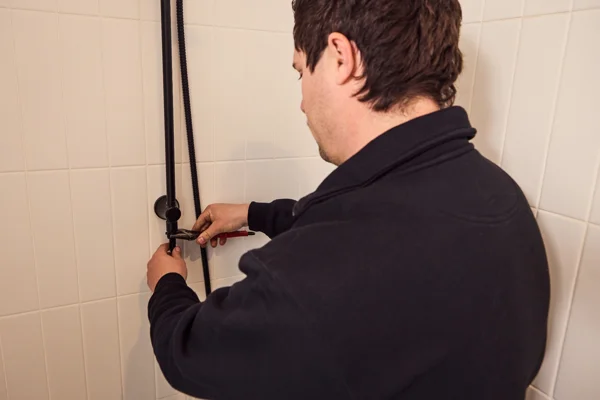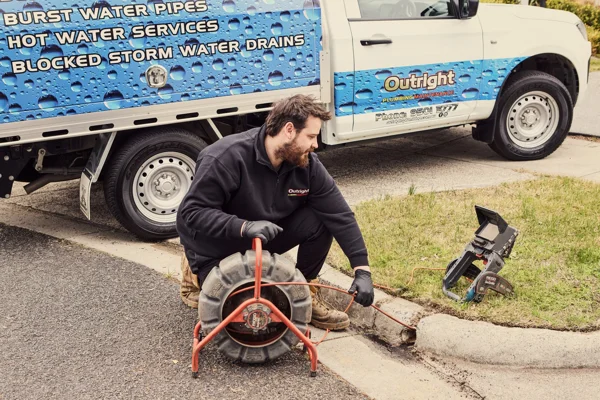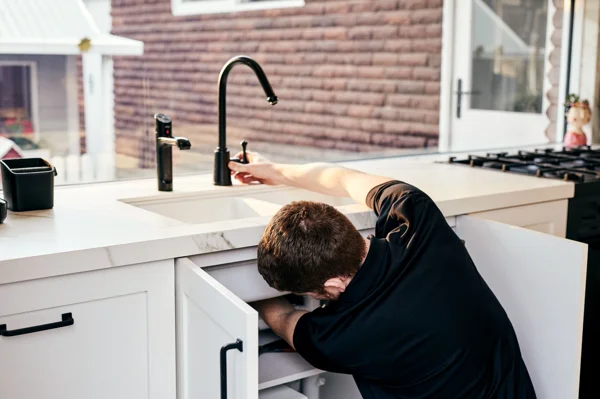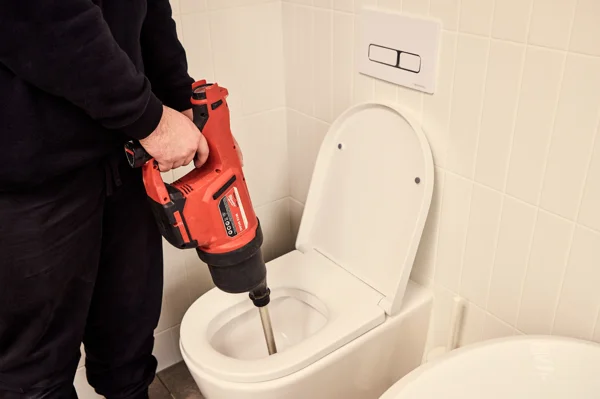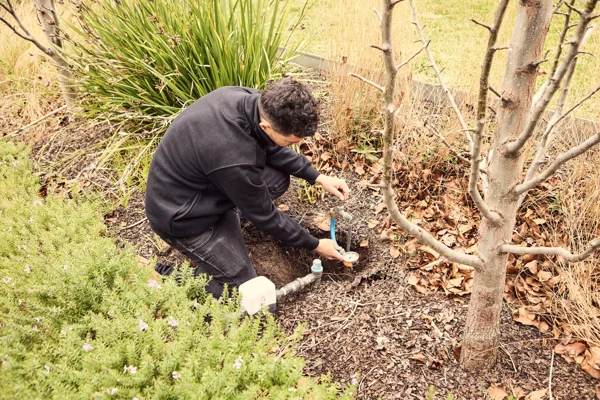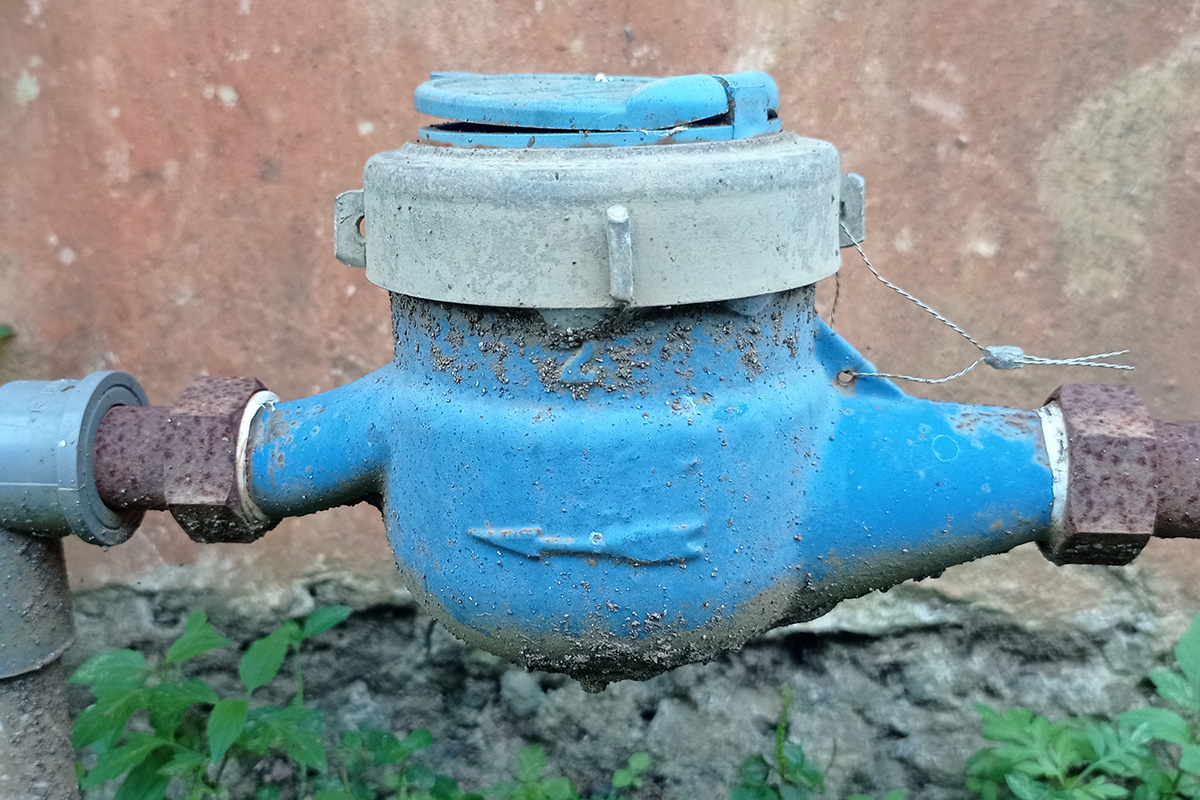Same-day emergency plumber Melbourne
Outright Plumbing responds fast to plumbing emergencies with fixed prices and dependable same-day service. With 25+ years’ experience and 700+ five-star reviews, you can count on us any time you need help.
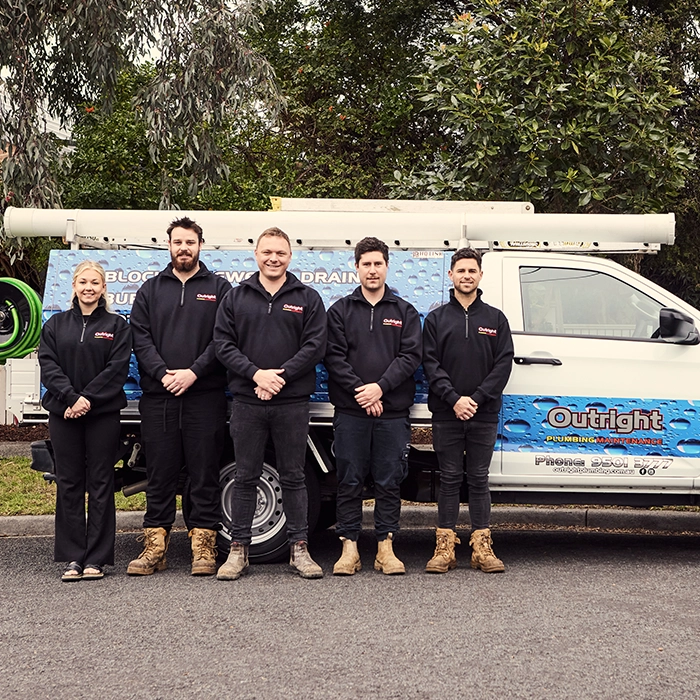


Outright Plumbing sends fast and reliable emergency plumbers
Burst pipes, overflowing toilets, and sudden leaks never happen at a good time. If water is going everywhere or you have no way to use your bathroom or kitchen, you need a plumber who can get there quickly and take control of the situation.
- We prioritise emergencies and aim to be on site the same day you call.
- Our plumbers talk you through what to do while you wait, like shutting off your mains.
- With fixed pricing explained upfront, you will know exactly what the repair will cost.

Our plumbing services
When the immediate emergency is under control, you may need follow-up work to prevent it from happening again. Explore our full range of plumbing services below to see how we can help with repairs, maintenance, and new installations.
Read through our sparkling client reviews
We’re proud to have earned over 700 5-star reviews from our gracious clients. Have a read through a few.
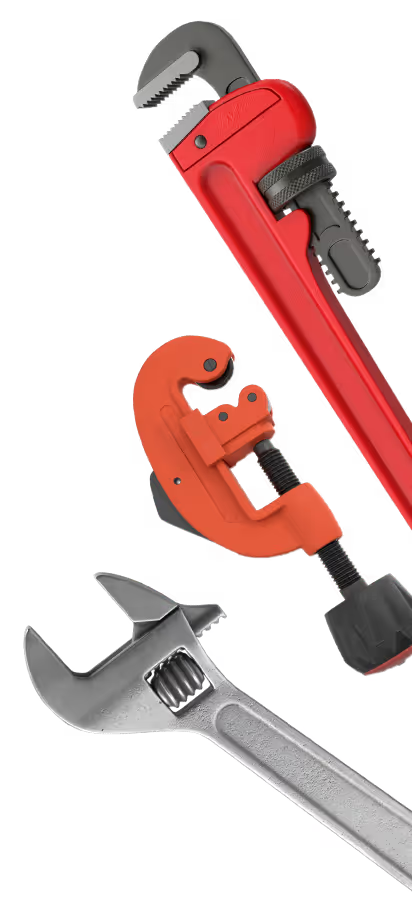
Common plumbing emergencies we’re called to fix
Plumbing problems come in many forms, and no two jobs are exactly the same. These are some of the emergencies we see most often, but if your issue isn’t listed here, we can still help.
Burst water pipes
Pipes can rupture without warning, sending water into walls, floors, or gardens. We act quickly to isolate the break, repair the damage, and prevent further flooding.
Blocked or overflowing toilets
A toilet you can’t use is one of the most urgent problems there is. We clear the blockage, check for deeper sewer issues, and make sure everything is safe to use again.
No hot water
Hot water can cut out suddenly, leaving you without showers or washing facilities. We diagnose whether the problem is with the heater, gas supply, or pipework, and get it running again.
Severe drain blockages
When sinks, showers, or outdoor drains back up, they can spill quickly and cause damage. Our jetters and drain cameras let us clear the line properly and stop the overflow.
Our plumbers share their insights on plumbing emergencies
Plumbing emergencies feel sudden, but there is usually more going on beneath the surface. Here are a few things our plumbers want you to know when you are facing an urgent problem.
The hidden risks behind common emergencies
A burst pipe is not just about water on the floor. Left alone, it can weaken plaster, damage timber, and even affect electrical wiring. A blocked toilet or sewer can spread bacteria through the home. The mess is obvious, but the hidden damage is why emergencies need fast attention.
- Burst pipes can saturate flooring and insulation, creating long-term mould problems.
- Sewage backups carry health risks that are not always visible at first glance.
- Even small leaks near wiring or appliances can create serious electrical hazards.
Why emergencies happen at the worst time
Most failures build up quietly. Pipes corrode, fittings loosen, and water pressure stresses joints until one day they give way. Tree roots often intrude into drains for months before the blockage suddenly reaches breaking point. What looks like a sudden failure has usually been on its way for a while.
That is why plumbers recommend regular checks in older homes, or whenever you notice small warning signs like gurgling drains, damp patches, or pressure changes. Catching these early can often prevent the “middle of the night” emergency call-out.
The difference between a temporary fix and a proper repair
Some fixes hold for a day or two, but they do not solve the real issue. We often see burst pipes patched with tape or drains cleared only at the surface. The water or waste will always find its way back. A proper repair means removing the damaged section, clearing the line thoroughly, and making sure the system is stable for the long term.
- Temporary fixes can shift the problem further down the line instead of solving it.
- Surface-level clearing of drains often leaves roots or debris behind that will quickly block again.
- Proper repairs include pressure testing, CCTV checks, or pipe replacement so the issue is genuinely resolved.
How plumbers prioritise emergencies
When several emergencies come in at once, we triage based on safety and damage. A gas leak or active flooding takes priority over a slow drip. We keep space in our day for these urgent call-outs and shift routine work to make sure emergencies are seen quickly. Knowing this helps customers understand why we respond the way we do.
It also means we may give you advice over the phone to reduce risk until we arrive, such as:
- Turning off your water supply at the mains to stop flooding.
- Switching off electricity at the board if water is near outlets or appliances.
- Keeping people clear of blocked or overflowing drains until they are sanitised.
Expect the best from Outright Plumbing's emergency services
When something goes wrong, the way your plumber handles it matters just as much as how fast they arrive. Here’s how Outright Plumbing works to keep the job clear and stress-free.
Clear communication from the first call to the final repair
From the moment you call, we’ll explain what’s happening and if there’s anything you can do to patch or slow the problem while you wait. Once we arrive, we keep you updated step by step in plain English, so you’re never left guessing.
Upfront fixed pricing before any work begins
You’ll always know the cost before we pick up a tool. Even in an emergency, we give you a fixed price so there are no surprises when the job is done.
Practical repair and replacement options you can choose from
We’ll outline the safest and most reliable ways to fix the problem and give you options if there’s more than one way forward. That way, you stay in control and can choose the solution that suits you best.
Book Outright Plumbing's emergency plumbers in Melbourne
Waiting is not an option when water is pouring through the ceiling or the toilet won’t flush. Call Outright Plumbing, and we will send an emergency plumber straight away.
A look at the plumbing emergencies we have fixed
Every week, we deal with burst pipes, overflowing toilets, and leaks that turn up out of nowhere. Our case studies show how we respond under pressure and get homes back to normal.
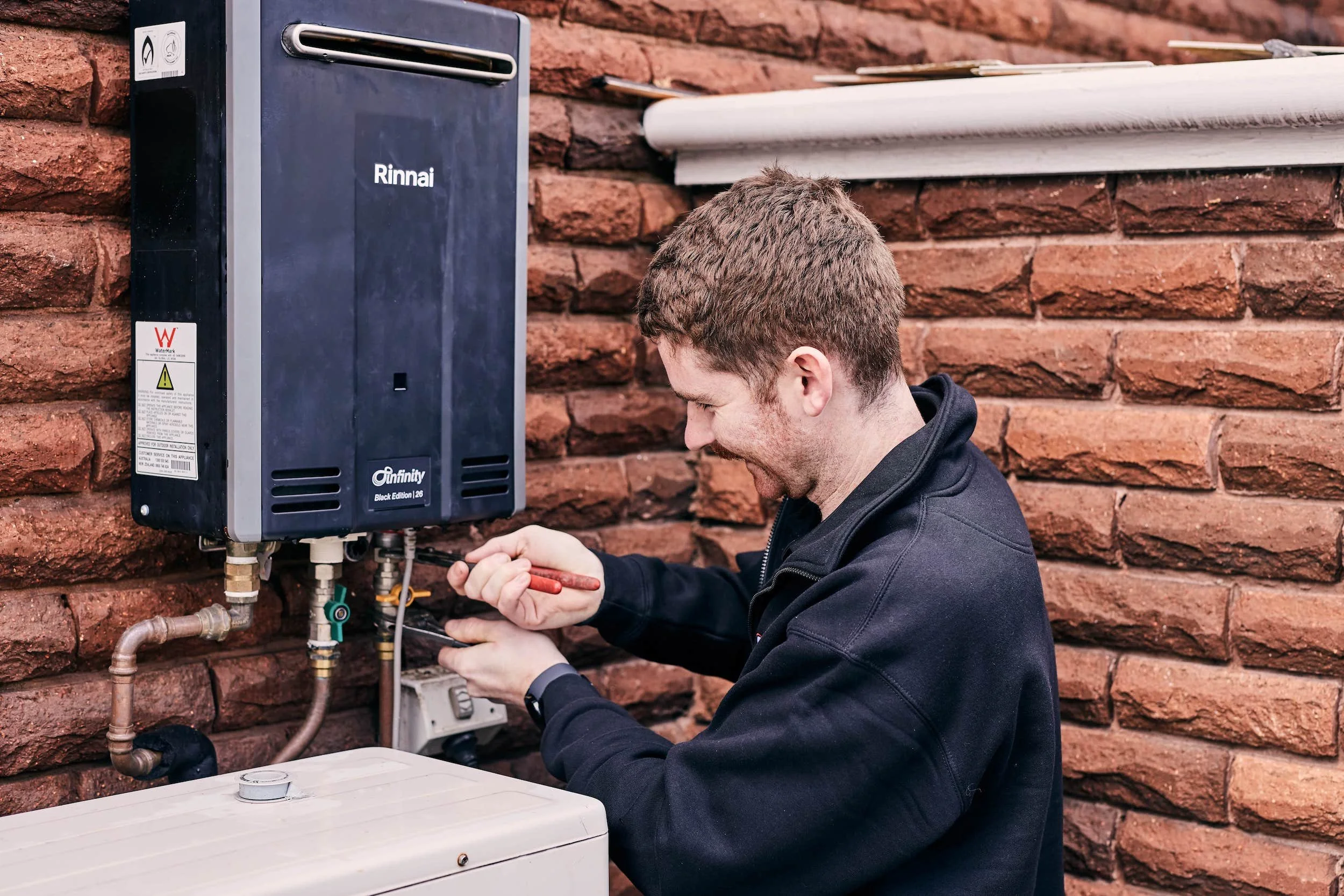
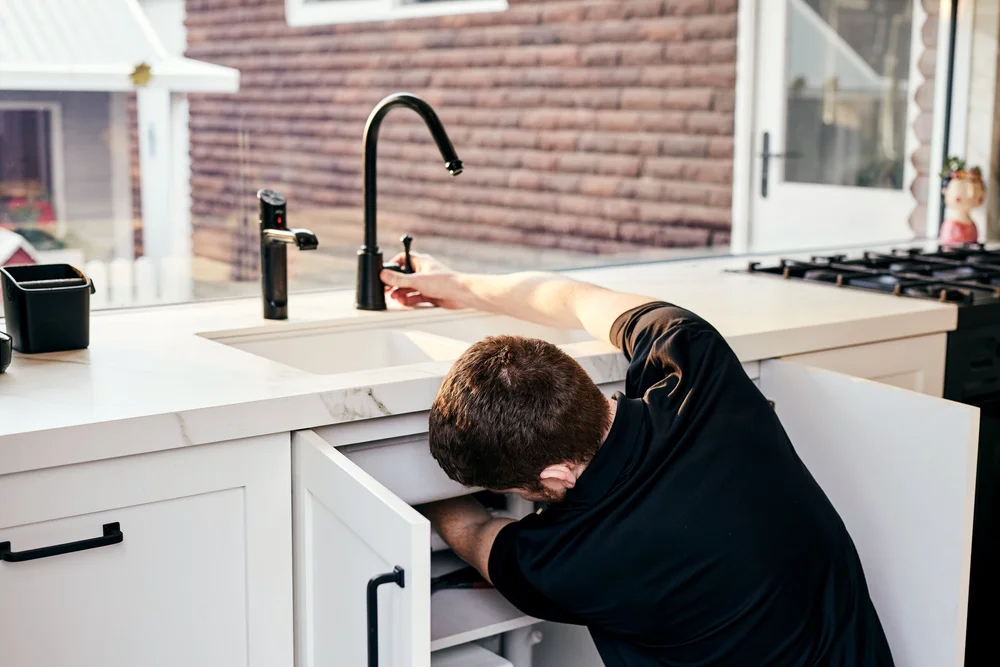
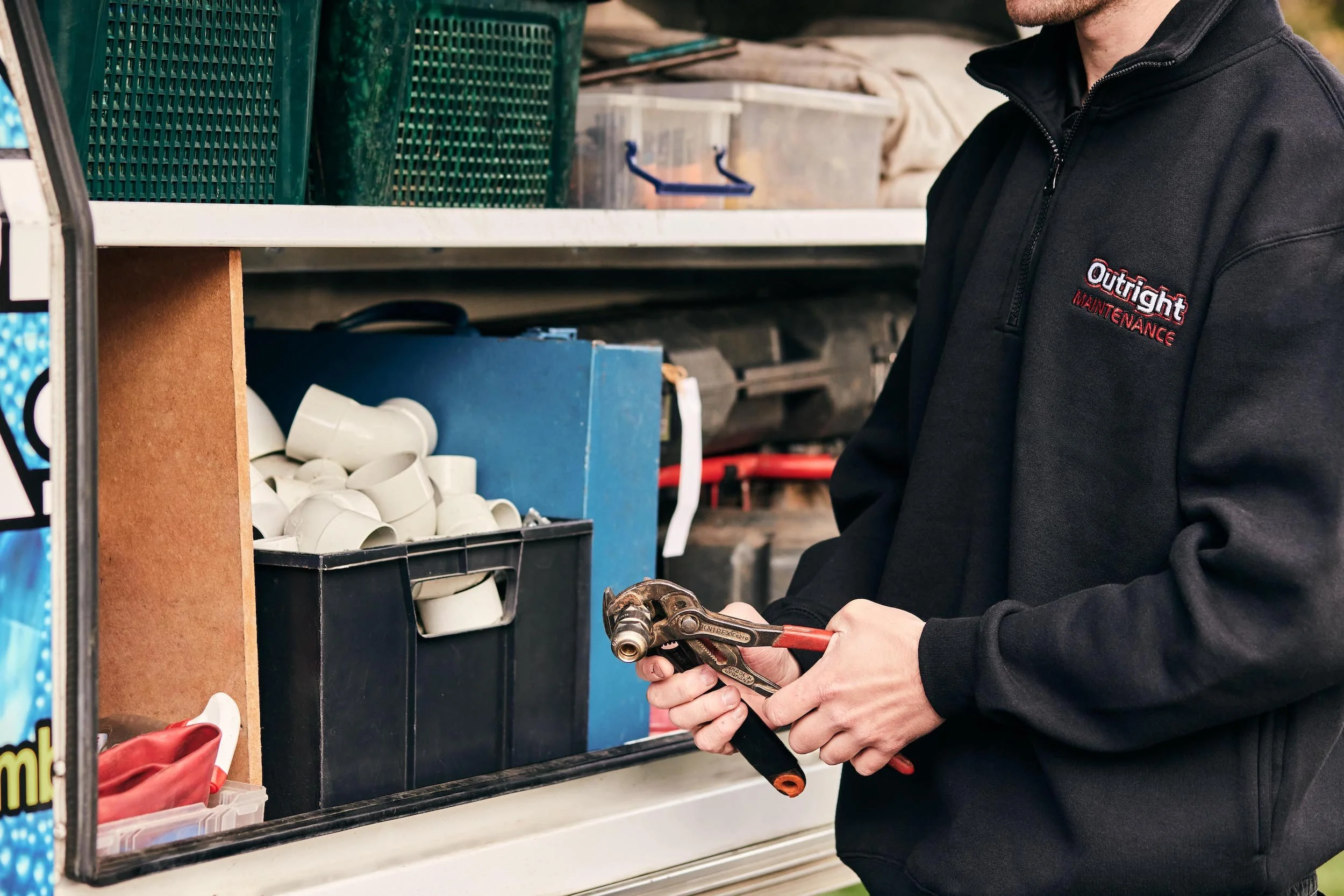
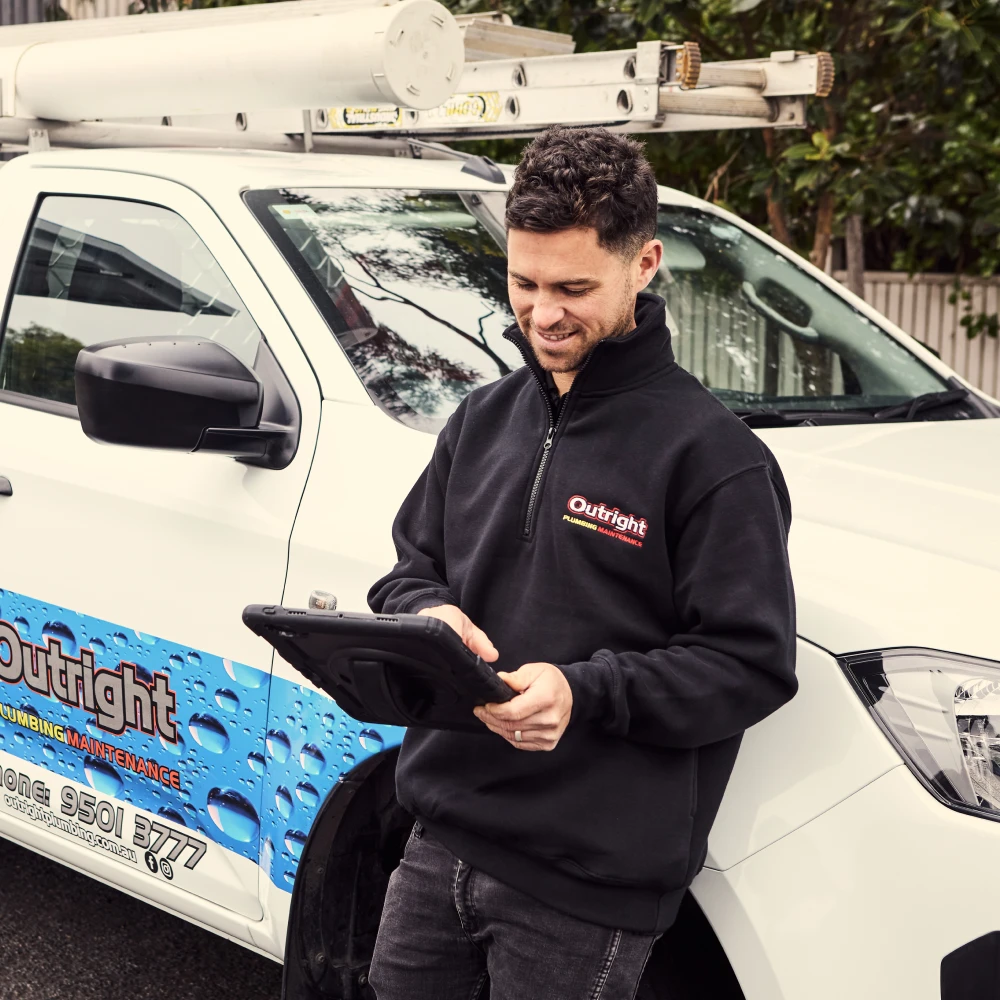
Why Melbourne businesses call Outright Plumbing in an emergency
When plumbing fails in a commercial setting, the costs multiply fast. A flooded office disrupts work. A blocked toilet in a restaurant risks health inspections. A burst pipe on a building site can halt construction. That is why commercial clients across Melbourne rely on Outright Plumbing for urgent call-outs.
- Developers and builders: We attend the site quickly, isolate the fault, and carry out compliant repairs so inspections and handovers stay on schedule.
- Hospitality and retail: Kitchens, bars, and bathrooms cannot afford downtime. We restore water and waste systems fast so service can continue.
- Schools and offices: High-use facilities need reliable plumbing. We repair emergencies with durable parts designed to withstand constant demand.
- Property managers: We provide rapid tenant support with clear reporting and fixed invoices, reducing complaints and avoiding repeat call-outs.
Outright Plumbing brings local experience, the right equipment, and the urgency commercial environments demand.
Photos from the plumbing issues we tackle every day
Scroll through our gallery to see the variety of emergency plumbing jobs we attend across Melbourne’s south.

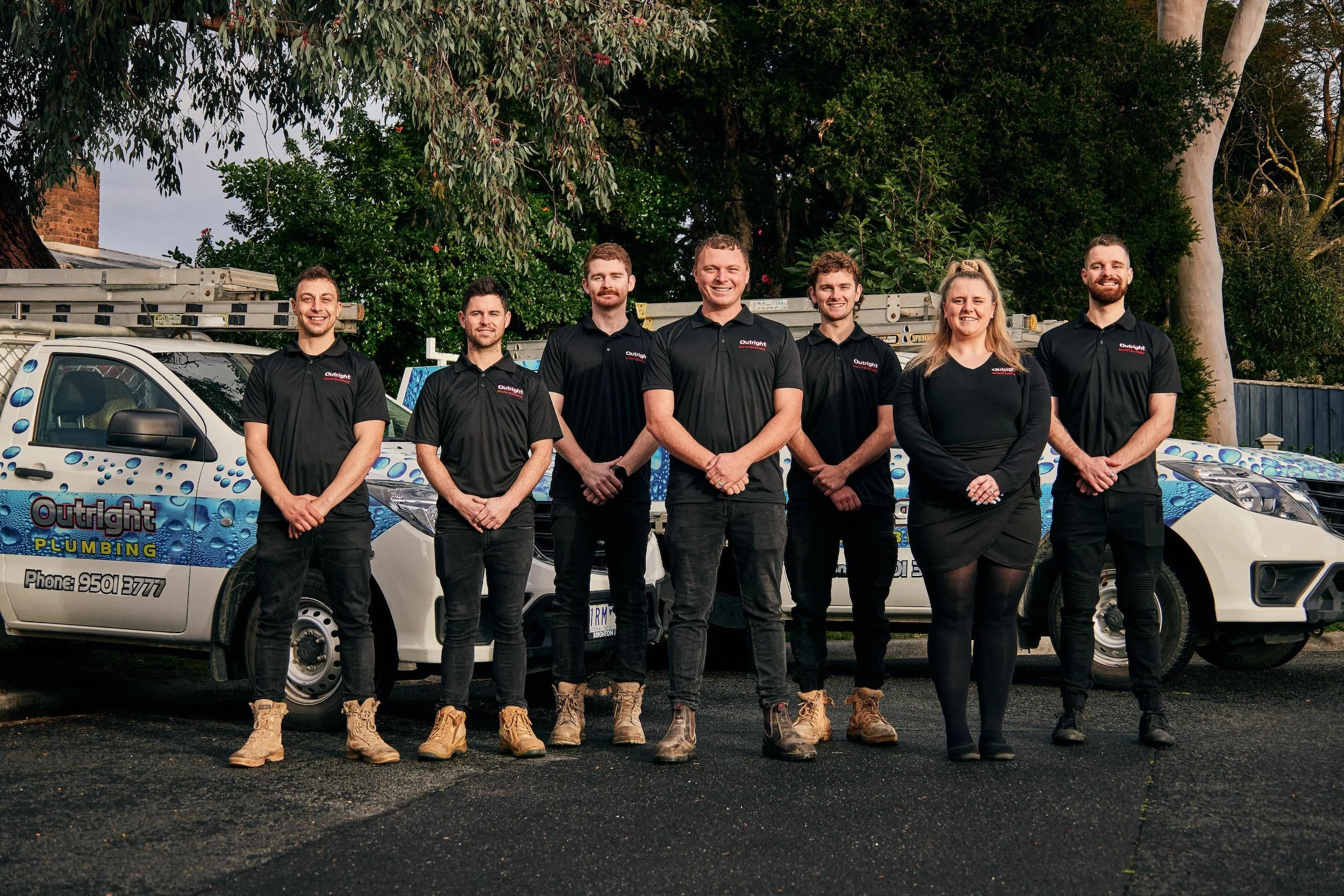
Expect the best from Outright Plumbing
When the pressure is on, you do not want guesses or delays. You want a plumber who knows the area, understands the problem, and gets it sorted the first time.
Local know-how that cuts through the chaos
Every suburb has its quirks. Old copper pipes in Brighton, heritage drains in Sandringham, tight unit blocks in Hampton: we’ve worked on them all, which means we can zero in on the fix quicker.
Repairs backed by our promise
An emergency repair should not be a band-aid job. If something we fix gives you trouble again, we’ll be back to make it right at no extra cost. That’s our workmanship guarantee.
Honest talk when the pressure is on
Emergencies are stressful enough without pushy sales. We tell you what is wrong, what it’ll cost, and how we will sort it. No spin, no upsell — just straight answers.
Outright Club for peace of mind all year round
If you like knowing a plumber will always pick up when you call, our Outright Club gives you that. Members get discounts, faster bookings, and the comfort of knowing help is always close by.
Melbourne-based and serving all neighbouring suburbs
From our Bayside headquarters, we can provide same-day emergency plumbing services to a range of southern suburbs in Melbourne. If you don’t see your suburb here, don’t worry: just give us a call and we’ll see what we can do.
Meet the team
We’re a family-run operation, and we personally know and vouch for every plumber who wears our badge.
Common questions people ask about emergency plumbing
These answers are checked by our plumbers, so you know they are based on real on-the-job experience and not generic advice.
How much does an emergency plumber cost in Melbourne?
The cost of an emergency plumber in Melbourne usually falls between $150 and $400. The price depends on the type of job: a blocked toilet or leaking tap is on the lower end, while repairing a burst pipe or replacing a hot water system will cost more. Work done outside of normal business hours may also sit higher because it takes extra resources to respond.
The key is knowing you won’t get bill shock on top of the plumbing problem. Outright Plumbing gives you fixed upfront pricing before we start, so you know exactly what the repair will cost, whether it’s a weekday Melbourne emergency or an after-hours call-out.
What emergency plumbing services do you offer?
We deal with all sorts of urgent plumbing issues. If it stops you from using your home safely, we treat it as an emergency. Some of the most common jobs we attend include:
- When a pipe suddenly bursts, the damage can spread fast, which is why we treat every burst water pipe call-out as urgent.
- A blocked toilet quickly becomes a crisis if you only have one in the house, so we put these jobs at the top of the list.
- A constantly running or leaking toilet can waste litres of water and cause damage behind the scenes if not fixed quickly.
- A gas leak repair is treated as top priority every time because it’s a safety risk for the whole household.
- When a hot water service breaks down, we know you need it repaired or replaced fast so you can get back to daily life.
- Blocked drains, whether it’s a kitchen sink or a stormwater line, are dealt with straight away before they back up further.
- During heavy rain, a leaking roof or overflowing gutters is urgent, so we also handle roof plumbing to keep water out of your home.
- When the source of the problem isn’t obvious, our leak detection gear lets us track it down quickly and stop the damage spreading.
From burst pipes to gas leaks to hot water system breakdowns, Outright Plumbing is the emergency plumber Melbourne homeowners trust. We provide great service and reliable plumbing repairs across Melbourne whenever an urgent plumbing issue comes up.
Do I need to shut off my water meter before you arrive?
In most emergencies, yes. Turning off the water meter will stop the flow and limit damage until help arrives. If the problem is a burst pipe, a leaking tap, or water flooding from a hot water system, shutting the valve at the meter is the quickest way to keep things under control. For a gas leak, turn off the main gas valve and get some fresh air moving through the house.
If you are not sure how to find your water meter or valve, the Victorian plumbing industry has simple guides, and we can talk you through it over the phone. Our Melbourne plumbers give clear advice so your plumbing system stays safe until we arrive. Outright Plumbing is here to keep you calm and your home under control.
Do you offer after-hours or weekend emergency plumbing?
Yes. Plumbing problems do not stick to business hours, so we make sure our team is available outside of them. That includes nights, weekends, and even public holidays. A blocked toilet on a Saturday or a burst pipe on a Sunday night is still an emergency, and we will get someone out as soon as possible.
Outright Plumbing provides emergency plumbing services in Melbourne when you need them most, so you are never left waiting for a plumbing solution.
Do you guarantee your emergency plumbing repairs?
We do. Every repair we carry out, even in a rush, is covered by our workmanship guarantee. If the same fault shows up again, we will come back and fix it at no extra charge.
Emergencies are stressful enough without wondering if the repair will last. Outright Plumbing stands by our plumbing repairs because Melbourne homeowners deserve reliable plumbing services they can trust.
Can you also do follow-up maintenance after an emergency repair?
Yes. Once the immediate problem is sorted, it is smart to check the rest of your plumbing system for wear and tear. A burst pipe, for example, can be a sign that other parts of the plumbing are under strain. We can carry out plumbing maintenance after an urgent job to prevent another breakdown.
Outright Plumbing looks after you when a plumbing emergency strikes, and when the smallest leak begins to drip. Trust us to sort you out with a complete plumbing solution rather than just a quick patch-up.
Handy tips and advice from our plumbing blog
We share practical plumbing advice you can use at home, from spotting early signs of trouble to dealing with leaks and blockages before they get worse.
Following a plumbing company on Instagram sounds a bit strange
But if you enjoy the weird satisfaction of seeing leaks fixed and pipes looking neat, you might just find our feed addictive.
Need emergency plumbing services in Melbourne? You know who to call!
A plumbing emergency does not get better if you leave it. Call Outright Plumbing now, and we will send a licensed plumber out straight away to get the problem under control.






.svg)

.svg)






.svg)






.svg)











.svg)


